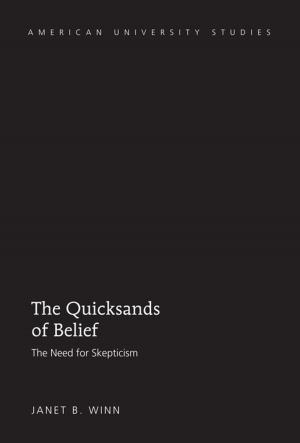The Production of Subjectivity in «The Diamond Age» by Neal Stephenson
Fiction & Literature, Literary Theory & Criticism, Feminist Criticism, Nonfiction, Art & Architecture, General Art, Religion & Spirituality, Philosophy| Author: | Sarah Jonckheere | ISBN: | 9783631727287 |
| Publisher: | Peter Lang | Publication: | August 14, 2017 |
| Imprint: | Peter Lang GmbH, Internationaler Verlag der Wissenschaften | Language: | English |
| Author: | Sarah Jonckheere |
| ISBN: | 9783631727287 |
| Publisher: | Peter Lang |
| Publication: | August 14, 2017 |
| Imprint: | Peter Lang GmbH, Internationaler Verlag der Wissenschaften |
| Language: | English |
The book brings to light Neal Stephenson’s answer to the technologically induced crisis in identity. The author of this book analyses the ethnocultural, technological, and ideological skeins that make up the biopolitical production of the self. The coming-of-age novel «The Diamond Age» reflects the processes surrounding the emergence of conscience. Through his inspired recycling of cultural traditions, Stephenson’s ethico-aesthetic engagement with technology, mass media, and literature advocates an epistemological change in being. This essay’s use of affect theory shows how a specific work informs literary theory and thinking, and how literature goes beyond reflecting the «zeitgeist»by offering creative ways to apprehend technology.
The book brings to light Neal Stephenson’s answer to the technologically induced crisis in identity. The author of this book analyses the ethnocultural, technological, and ideological skeins that make up the biopolitical production of the self. The coming-of-age novel «The Diamond Age» reflects the processes surrounding the emergence of conscience. Through his inspired recycling of cultural traditions, Stephenson’s ethico-aesthetic engagement with technology, mass media, and literature advocates an epistemological change in being. This essay’s use of affect theory shows how a specific work informs literary theory and thinking, and how literature goes beyond reflecting the «zeitgeist»by offering creative ways to apprehend technology.















